Dropshipping Coffee Suppliers in 2025
Discover the best dropshipping coffee suppliers for 2025, including free and USA-based options. Learn how to start, choose private label or wholesale partners, and find suppliers perfect for Shopify or your small business.


Are you looking to start a coffee dropshipping business in 2025? Finding the best coffee suppliers can be a game-changer for your eCommerce venture. With the rise in coffee demand, there’s never been a better time to enter the market. Whether you want private label coffee dropshipping or wholesale coffee suppliers, there’s a solution for every type of business. In this comprehensive guide, we’ll walk you through the top coffee dropshipping suppliers—both free and paid—to help you automate your coffee store and scale quickly. From roast to order dropship coffee to branded coffee dropshipping, we’ve got the best options for Shopify dropshipping and more. Ready to fuel your dropshipping business with the best coffee? Let’s dive in.
What is Dropshipping Coffee?
Dropshipping coffee means you sell coffee online without ever storing the products. When a customer orders, you forward the details to your chosen coffee supplier, who handles packing and shipping.
Why Choose Dropshipping for Your Coffee Business?
Entering the online coffee market is a smart move, given the industry's massive growth. The global coffee market was valued at USD 269.27 billion in 2024 and is expected to reach USD 369.46 billion by 2030, growing at a CAGR of 5.3% from 2025 to 2030. Coffee is a daily necessity for millions, making it a stable and profitable market.
Benefits of Dropshipping for Coffee
- No Inventory: Avoid the hassle of storing or managing coffee stock.
- Low Upfront Costs: Start your business without a big initial investment.
- Flexible & Scalable: Focus on brand-building while your supplier handles fulfillment and shipping.
- Global Reach: Sell to customers worldwide without managing a warehouse.
Market Trends and Profit Potential
Coffee remains one of the most consumed beverages globally, making it a solid choice for dropshipping. Nearly 79% of coffee drinkers brew their coffee at home, and they crave unique flavors and high-quality beans.
Key Stats for 2025
- The global coffee market revenue is expected to be US $105.37 bn in 2025
- High Repeat Purchases: Coffee lovers often reorder monthly or weekly.
- Profit Margins: Expect margins between 15% and 40%.
- Subscription Model: Many suppliers offer recurring deliveries for steady revenue.
Private Label vs. Wholesale Coffee Dropshipping
When selecting a coffee dropshipping supplier, you’ll typically choose between private label or wholesale coffee.
Private Label Coffee Dropshipping
- Sell coffee under your brand name.
- Great for building a unique identity.
- Popular suppliers include Dripshipper, Blessed Bean Coffee, and Path Coffee Roasters.
Wholesale Coffee Dropshipping
- Sell branded coffee from established suppliers.
- Lower margins but higher brand recognition.
- Ideal for expanding product range quickly.
Both options allow you to automate your coffee store and reach global markets without handling logistics.
Top 10 Dropshipping Coffee Suppliers
Starting a coffee dropshipping business requires the right supplier to ensure quality, fast shipping, and smooth integration. Here are five of the best coffee dropshipping suppliers in 2025:
1. Spocket – Best for Global Dropshipping & Shopify Integration
Spocket is an excellent choice for dropshipping coffee with global reach, offering fast shipping and easy integration with Shopify, WooCommerce, and Wix.
.avif)
Key Features
- Wide range of coffee from trusted US suppliers.
- Direct integration with Shopify and automated order fulfillment.
- Private label dropshipping options.
- Free and premium plans for different business sizes.
Pros
- Fast shipping in the USA and Europe.
- Automates coffee dropshipping, saving time.
- Variety, including specialty blends and single-origin beans.
Cons
- Monthly fees for premium features.
- Some suppliers require minimum order quantities.
Why Choose Spocket?
Spocket simplifies dropshipping for those using Shopify, offering a reliable global network perfect for both small businesses and growing stores.
2. Dripshipper – Best Coffee-Specialized Dropshipping Supplier
Dripshipper focuses exclusively on coffee, offering private label options and custom packaging to help build your brand. It integrates seamlessly with Shopify to automate your orders.
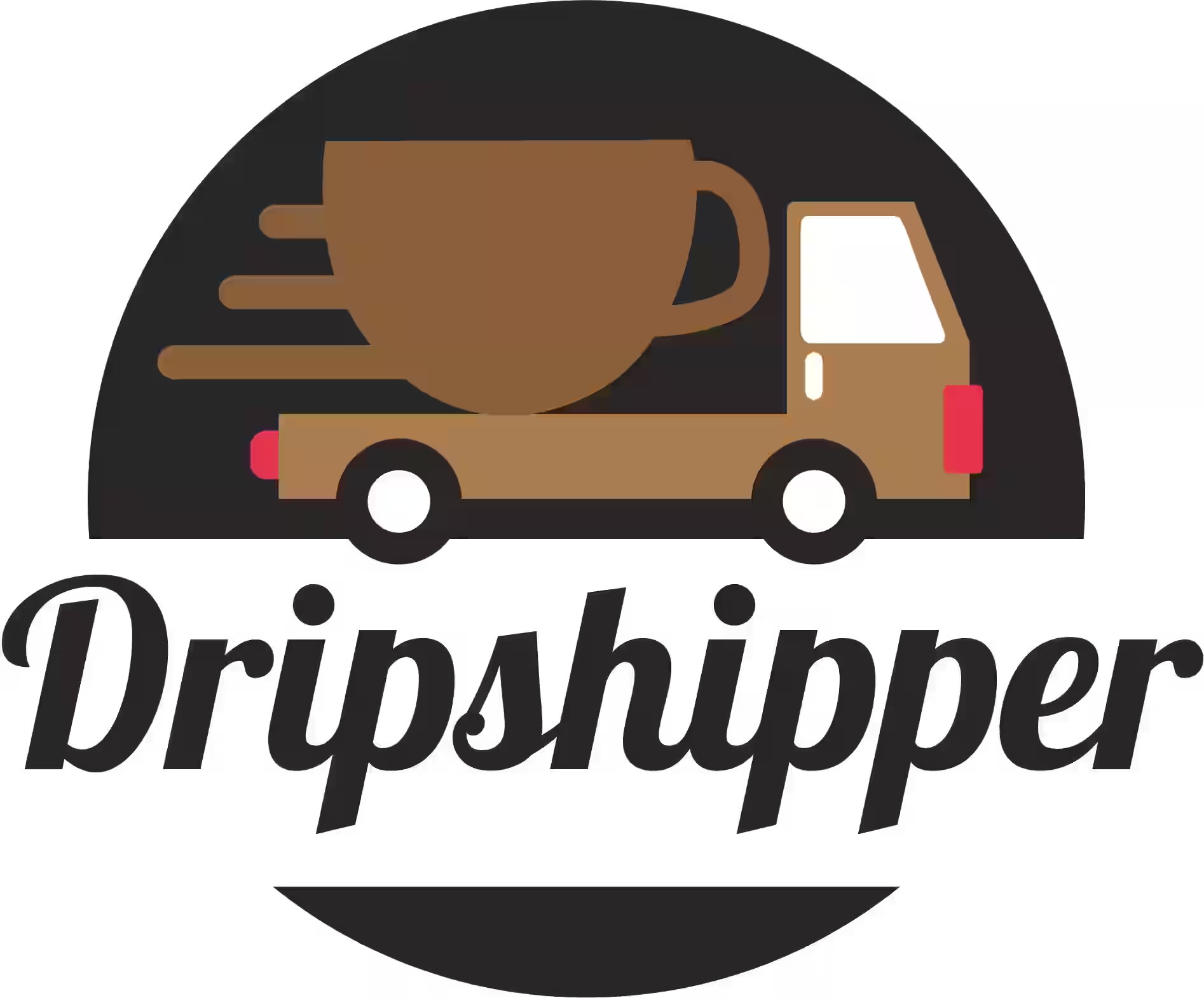
Key Features
- 100% American roasted coffee.
- Private label with custom branding.
- Subscription models for recurring revenue.
Pros
- Coffee expertise and quality products.
- Great for private label entrepreneurs.
- Transparent pricing starting at $30/month.
Cons
- Monthly subscription fees.
- Limited to coffee and related gear.
Why Choose Dripshipper?
Choose Dripshipper if you want a coffee-focused supplier to help you create a unique, branded coffee business with automated fulfillment.
3. Path Coffee Roasters – Best for Specialty & Private Label Coffee
Path Coffee Roasters specializes in specialty coffee, offering roast-to-order options and premium private label services. It’s perfect for building a high-quality, story-driven coffee brand.
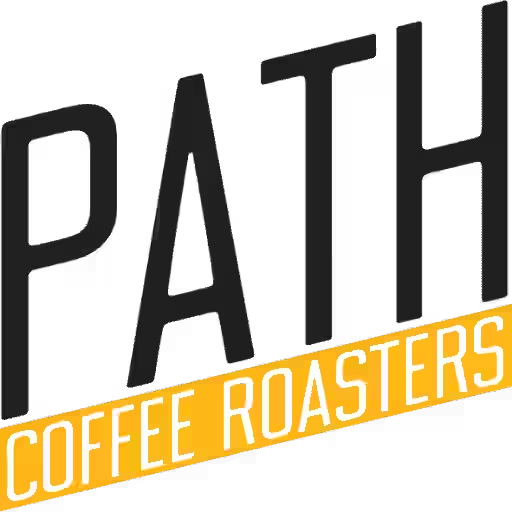
Key Features
- Small-batch, ethically sourced coffee.
- Private label with custom packaging.
- One-time setup fee of $175.
Pros
- High-quality, ethically sourced coffee.
- No ongoing fees for private labeling.
- Shopify integration.
Cons
- One-time setup fee may deter small startups.
- Smaller range, mainly specialty coffee.
Why Choose Path Coffee Roasters?
Ideal for businesses looking for premium, artisanal coffee with a compelling story behind it. Path Coffee Roasters is perfect for building a premium coffee brand.
4. Blessed Bean Coffee – Best for Small Businesses & Private Label
Blessed Bean Coffee is a US-based roaster offering private label and white label coffee with no minimum orders. It's an excellent option for small businesses looking to get started without significant upfront costs.

Key Features
- Private and white label coffee.
- No minimum order requirements.
- Simple pricing based on orders ($0.50 per order fee).
Pros
- Low barrier to entry, great for startups.
- Easy private label branding.
- Supports small business coffee supply needs.
Cons
- Variable order processing times.
- Limited customization options.
Why Choose Blessed Bean Coffee?
Ideal for small businesses or startups, Blessed Bean Coffee offers flexibility and minimal investment, making it easy to start your coffee dropshipping journey.
5. Temecula Coffee Roasters – All-In-One Coffee Store Partner
Temecula Coffee Roasters provides an all-in-one solution with wholesale and dropshipping options. They offer a wide selection of coffees and private label services.
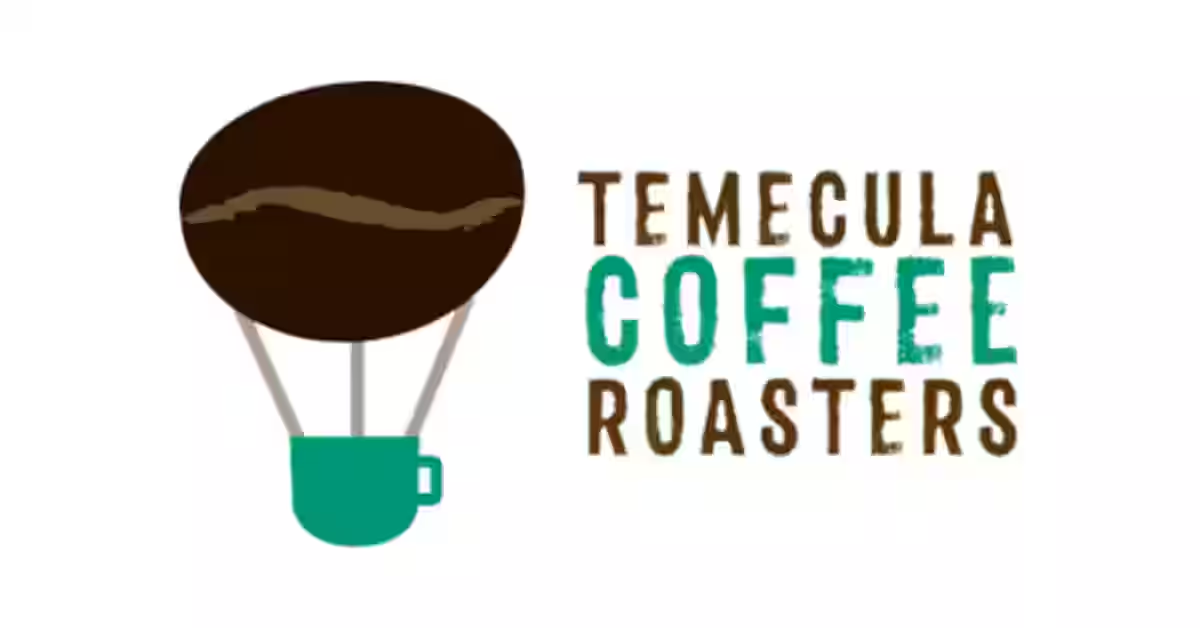
Key Features
- Wide variety: whole bean, ground, flavored blends.
- Private label and custom packaging.
- No startup fees, pay-as-you-go pricing.
Pros
- No upfront or monthly fees.
- Flexible for both dropshipping and wholesale.
- Excellent Shopify support.
Cons
- Pricing varies by product and volume.
- Some customization options require minimum quantities.
Why Choose Temecula Coffee Roasters?
Temecula is perfect if you want a flexible supplier with no startup costs. They offer a wide range of products and support growing dropshipping businesses.
6. Aroma Ridge – Wide Selection and Custom Blends
Aroma Ridge Coffee Roasters offers a wide selection of gourmet coffee blends with options for private label coffee dropshipping. With over 30 years of roasting experience, they provide high-quality, small-batch coffee, including unique flavored blends.
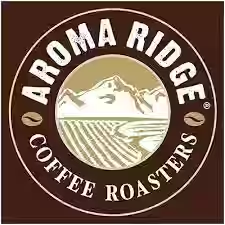
Key Features
- Custom labels and bags with 8 color options and 3 sizes.
- Fresh roasted, small-batch coffee including flavored options like fruity and nutty.
- Fast shipping within 2 business days via UPS, FedEx, or USPS.
- Gift boxes for special occasions.
Pros
- Wide range of products, including unique flavored blends.
- Customization options for your signature coffee blends.
- Fast US-based fulfillment.
Cons
- $100 non-refundable signup fee.
- $3.25 fee per order.
- No direct app or integration; manual order handling.
- No use of their product images or descriptions.
Why Choose Aroma Ridge?
If you're looking to build a unique coffee brand with plenty of customization options and quality blends, Aroma Ridge is a great choice. Ideal for businesses willing to invest in branding and offering variety beyond standard coffee.
7. Joe’s Garage Coffee – Best for Cups & Variety
Joe’s Garage Coffee isn’t just about coffee—it also offers coffee cups and accessories. This helps you expand your product catalog and appeal to a wider range of coffee lovers and gift shoppers.
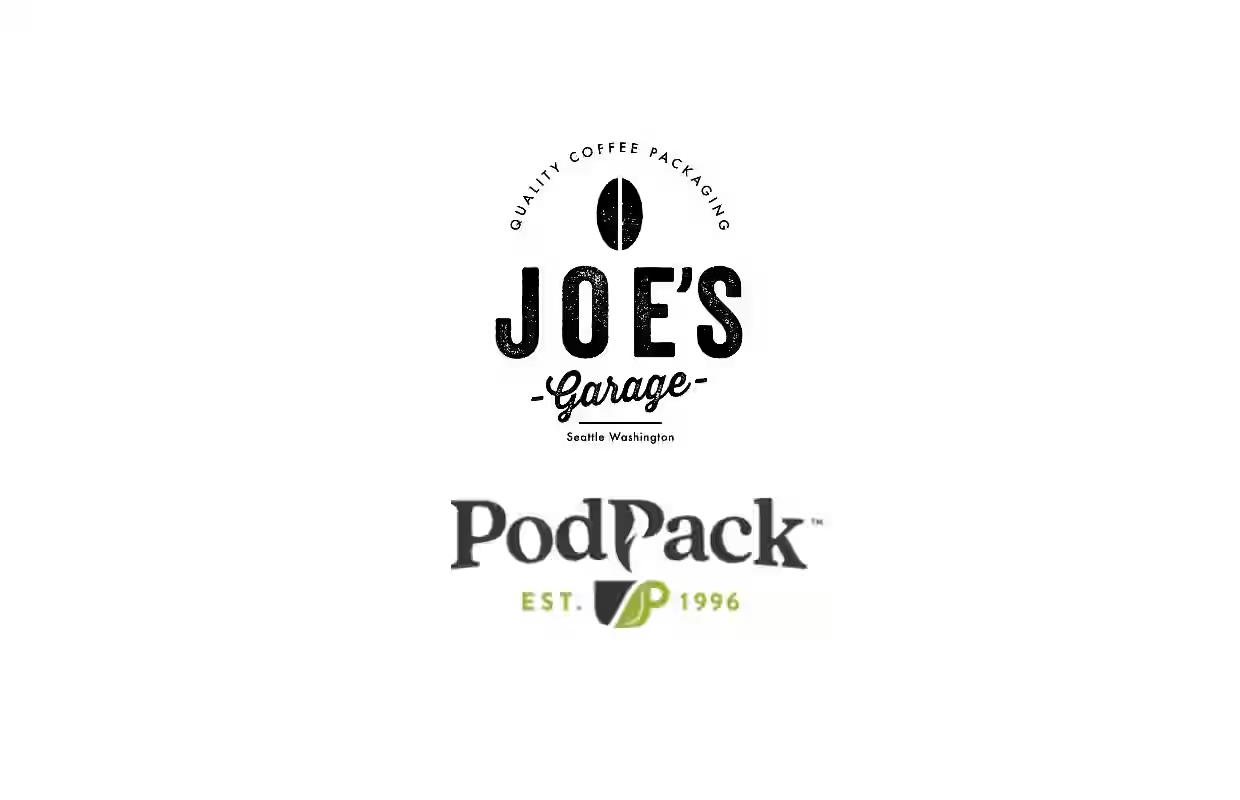
Key Features
- Dropshipping for coffee, cups, and accessories.
- Branded packaging options to personalize your offerings.
- US-based fulfillment with competitive pricing.
Pros
- Ability to diversify your store with coffee cups and accessories.
- Low startup costs with a free program to join.
- Offers branded packaging for consistent branding.
Cons
- Smaller coffee variety compared to other coffee-only suppliers.
- Limited integration options, likely requiring manual order management.
Why Choose Joe’s Garage Coffee?
Joe’s Garage is perfect for stores that want to create a complete coffee experience, offering both coffee beans and lifestyle products. Ideal for businesses that want to sell gift items alongside coffee.
8. Supliful – Trending Functional Coffees (Hemp, Mushroom, etc.)
Supliful taps into the functional coffee trend, offering hemp-infused and mushroom coffee blends. This supplier caters to health-conscious customers looking for unique, trendy products.

Key Features
- Offers hemp and mushroom coffee along with regular blends.
- Private label dropshipping with full branding control.
- Monthly subscription plans with varying feature access.
- Shopify and WooCommerce integration.
Pros
- Focuses on emerging trends like functional coffees.
- Strong brand-building opportunities with private label.
- Easy integration for automation.
Cons
- Monthly fees from $29 to $349 depending on the plan.
- Smaller general coffee stock, with a focus on niche functional coffees.
Why Choose Supliful?
For those targeting a health-conscious audience, Supliful offers a trendy coffee dropshipping business model with functional ingredients like hemp and mushrooms. Great for Shopify dropshipping businesses aiming to stand out with unique offerings.
9. Syncee – Dropship Existing Coffee Brands Globally
Syncee provides dropshipping access to a wide selection of established coffee brands. It’s perfect for those looking for a reliable, wholesale-based supplier with global shipping capabilities.

Key Features
- Access to established coffee brands worldwide.
- Shopify, WooCommerce, and BigCommerce integration.
- Automated order fulfillment across multiple countries.
- Subscription-based pricing with tiered plans.
Pros
- Wide variety of trusted coffee brands.
- Global shipping and fulfillment.
- Streamlined dropshipping automation with platform tools.
Cons
- Subscription fee starting at $40/month.
- Limited private label options.
Why Choose Syncee?
Syncee is perfect for sellers who want a broad product catalog with trusted coffee brands. It’s ideal for businesses looking for ease of automation and wholesale-based dropshipping.
10. Volcanica Coffee – Best for Premium & Exotic Coffee Beans
Volcanica Coffee specializes in premium and exotic coffee beans, offering rare single-origin coffees. Their dropshipping program is perfect for sellers targeting coffee connoisseurs and niche markets.
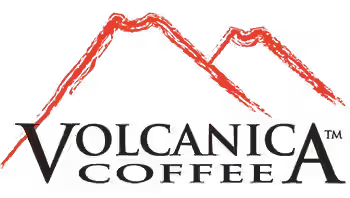
Key Features
- Premium single-origin and exotic coffee beans.
- Dropshipping program for online sellers.
- US-based fulfillment with international reach.
Pros
- Unique, high-quality product range with rare coffees.
- Appeals to a premium market.
- Supports private label and specialty stores.
Cons
- Higher pricing reflects the premium nature.
- Smaller operation compared to mass-market suppliers.
Why Choose Volcanica Coffee?
Volcanica Coffee is perfect for businesses looking to cater to coffee enthusiasts who value quality and rarity. If you want to build a boutique coffee dropshipping business, this supplier is an excellent choice.
How to Evaluate and Choose the Best Dropshipping Coffee Supplier
Choosing the right dropshipping coffee supplier is essential for your business's success. In 2025, the revenue generated from at-home coffee sales (such as those in supermarkets and convenience stores) is expected to reach US$105.37 billion. To succeed, you need a partner that delivers high-quality products, reliable shipping, and excellent customer support. This guide will help you evaluate key factors, compare private label vs. wholesale options, explore integrations, and understand vital shipping and support considerations.
Key Criteria for Selection
When evaluating coffee suppliers, consider these key factors:
- Product Quality: Ensure freshness and consistency in flavor. Look for suppliers with high customer ratings and transparent sourcing practices. Ordering samples can help verify quality.
- Variety and Customization: Choose suppliers with a diverse coffee selection, including Arabica, Robusta, organic, or flavored blends. Look for private label or white label options for branding.
- Reliable and Fast Shipping: Fast delivery is crucial for maintaining coffee freshness. Suppliers with warehouses in the USA and Europe typically offer faster shipping.
- Pricing and Fees: Transparent pricing with reasonable minimum order quantities ensures steady margins. Watch for monthly subscriptions or setup fees.
- Sustainability and Ethics: Ethical sourcing and fair-trade certifications appeal to customers seeking responsible products, improving your brand’s reputation.
- Customer Service and Support: Choose suppliers offering responsive customer support, with multiple contact options (email, phone, live chat) to resolve issues quickly.
These factors ensure you partner with a reliable, scalable coffee dropshipping supplier.
Private Label vs. Wholesale: Which is Right for You?
When choosing between private label and wholesale dropshipping, each has its benefits:
Private Label Coffee Dropshipping
- Sell coffee under your own brand.
- Higher profit margins and brand exclusivity.
- Ideal for niche or specialty coffee shops, especially on Shopify.
- Examples: Dripshipper, Blessed Bean Coffee, Path Coffee Roasters.
Wholesale Coffee Dropshipping
- Sell established coffee brands without rebranding.
- Offers product variety and lower startup costs.
- Best for those seeking brand recognition and fast market entry.
Many sellers combine both models, using private label for branding and wholesale for product variety and volume.
Integrations (Shopify, Wix, WooCommerce)
Look for suppliers that integrate with popular eCommerce platforms:
- Shopify: Most common for coffee dropshipping, with extensive app support.
- Wix: Ideal for beginners, offering simple integration.
- WooCommerce: Perfect for WordPress users, but requires more setup.
Choose suppliers that offer native apps or plugins to automate order processing, inventory management, and performance tracking. This automation enhances efficiency and customer satisfaction.
Shipping, Fulfillment, and Support Considerations
Effective shipping and support are crucial to your success:
- Shipping Speed: Fast shipping is vital for maintaining coffee quality. Look for suppliers with same-day or next-day shipping.
- Packaging: Ensure packaging protects freshness, such as degassing valves or retail-ready packaging for private labels.
- Order Fulfillment Automation: Automate order processing to minimize errors and delays.
- Customer Support: Quick resolution of issues like shipping delays, returns, or damaged goods is essential.
- Return and Refund Policies: Ensure the supplier has clear, fair return and refund policies.
By focusing on these operational factors, you can build a successful coffee dropshipping business that delights customers with quality products and timely deliveries.
Dropshipping Coffee on Shopify: Integration, Set Up & Tips
Starting a coffee dropshipping business on Shopify offers powerful tools for automation and scaling. By partnering with trusted coffee dropshipping suppliers, including those offering private label coffee dropshipping and wholesale coffee suppliers, you can focus on branding without worrying about inventory or fulfillment logistics. Here’s how to set up and automate your coffee dropshipping store on Shopify for a smooth, successful launch.
Step-by-Step: Launching a Coffee Dropshipping Store on Shopify
1. Choose Your Dropshipping Coffee Suppliers
- Opt for US-based fulfillment suppliers with good reviews, like Dripshipper or Blessed Bean Coffee.
- Ensure they offer fresh coffee and fast delivery to ensure customer satisfaction.
2. Create Your Shopify Account and Store
- Sign up for Shopify’s free trial or a suitable plan.
- Pick a domain name that aligns with your coffee brand and register it.
3. Select a Coffee-Themed Shopify Theme
- Choose a theme that highlights coffee imagery and tells the story of your product.
- Customize your store using your brand’s colors and fonts to create a memorable experience.
4. Add Products from Your Suppliers
- Use Shopify apps like Spocket, Dripshipper, or manual listings to import coffee products.
- Re-write product descriptions with SEO-optimized content to attract and engage coffee lovers.
5. Set Up Essential Pages
- Include shipping policies, return info, FAQs about sourcing, and a compelling About Us page.
- Transparency builds trust in your coffee brand.
6. Configure Payment and Shipping Options
- Enable Shopify Payments for easy checkout.
- Set realistic shipping rates based on your supplier’s fulfillment zones.
7. Market Your Store
- Use social media, content marketing, and Shopify email campaigns to share your coffee story and attract customers.
Automations, Apps & Order Fulfillment
Shopify’s ecosystem makes it easy to automate your coffee dropshipping business.
- Apps like Spocket, Dripshipper, and Syncee automate product syncing, inventory updates, and order forwarding, ensuring smooth order processing.
- Inventory updates prevent out-of-stock issues and reduce customer cancellations.
- Real-time tracking integration keeps customers informed, boosting satisfaction and trust.
- Subscription models are easily automated, allowing for regular coffee deliveries and increasing lifetime customer value.
- Marketing automation apps for abandoned cart recovery and promotions help keep your brand top of mind.
Automation streamlines your business operations, allowing you to focus on marketing, product selection, and customer engagement.
Branding and Private Label Coffee Strategies
Strong branding is essential to stand out in the competitive coffee market.
- Private label coffee dropshipping lets you add your logo and customize packaging. Suppliers like Dripshipper, Blessed Bean Coffee, and Path Coffee Roasters handle roasting and fulfillment while you control the brand experience.
- Build your brand around quality and a compelling story about the origin of your coffee, roasting methods, or ethical sourcing.
- Social media and content marketing help engage customers by sharing brewing tips, coffee culture, and your brand’s mission.
- Customize your packaging with elegant logos and eco-friendly materials to enhance value.
- Consider offering roast-to-order dropship coffee to ensure freshness, which many private label suppliers provide.
SEO is essential—incorporate keywords like branded coffee dropshipping, coffee for eCommerce, and small business coffee supply in your product listings and blog content.
Expert Tips for Growing Your Coffee Dropshipping Store
Running a successful coffee dropshipping store requires more than just great products. To scale your business, you need creative marketing strategies, solid operations, and the ability to avoid common pitfalls. Here are some expert tips to help you grow your store and build a loyal customer base.
Creative Marketing for Your Coffee Brand
- Leverage Social Media
- Offer Subscription Services
- Implement subscription models to drive recurring revenue and keep customers coming back for fresh coffee deliveries.
- Implement subscription models to drive recurring revenue and keep customers coming back for fresh coffee deliveries.
- Email Marketing Campaigns
- Create segmented email campaigns to target specific customer groups, like new customers or regular buyers. Share discounts, new product updates, and coffee tips.
- Create segmented email campaigns to target specific customer groups, like new customers or regular buyers. Share discounts, new product updates, and coffee tips.
- Collaborate with Influencers
- Partner with coffee influencers and bloggers for product reviews and giveaways. This expands your brand reach and builds credibility.
- Partner with coffee influencers and bloggers for product reviews and giveaways. This expands your brand reach and builds credibility.
- Content Marketing
- Start a blog around coffee culture, brewing techniques, and sustainability to boost SEO and engage your audience with valuable content.
Common Pitfalls and How to Avoid Them
- Overlooking Shipping Times
- Slow shipping can ruin your reputation. Choose suppliers that offer fast, reliable shipping and provide tracking information to your customers.
- Slow shipping can ruin your reputation. Choose suppliers that offer fast, reliable shipping and provide tracking information to your customers.
- Not Differentiating Your Brand
- Coffee is a competitive market. Use private label coffee dropshipping to create a unique brand experience with custom packaging and storytelling.
- Coffee is a competitive market. Use private label coffee dropshipping to create a unique brand experience with custom packaging and storytelling.
- Ignoring Customer Support
- Poor customer service can drive customers away. Ensure you provide quick responses, clear return policies, and hassle-free solutions.
- Poor customer service can drive customers away. Ensure you provide quick responses, clear return policies, and hassle-free solutions.
- Underestimating the Importance of SEO
- Failing to optimize your product descriptions and blog content for SEO means missing out on organic traffic. Make sure your website ranks for coffee-related keywords.
- Failing to optimize your product descriptions and blog content for SEO means missing out on organic traffic. Make sure your website ranks for coffee-related keywords.
- Not Testing Products
- Always sample products before selling. This ensures quality and helps you offer the best to your customers, reducing returns and dissatisfaction.
Conclusion: Choosing the Right Dropshipping Coffee Supplier
Selecting the right dropshipping coffee supplier is crucial for the success of your business. Focus on quality, reliable shipping, and brand differentiation when making your decision. Whether you choose private label or wholesale, ensure your supplier aligns with your business goals and values. Take advantage of automation and integrations to streamline your operations, and always prioritize customer satisfaction. By choosing a supplier like Spocket that offers fresh products, excellent support, and scalable solutions, you set the foundation for long-term growth in the competitive coffee market.
FAQs About Dropshipping Coffee Suppliers
Can you dropship coffee?
Yes, you can dropship coffee by partnering with coffee suppliers who handle inventory, packaging, and shipping directly to your customers. You only need to focus on marketing and sales.
Is dropshipping coffee profitable?
Yes, dropshipping coffee can be profitable, especially if you choose reliable suppliers, offer unique blends, and focus on building a strong brand. Profit margins can range from 15% to 40%.
How do you start a coffee dropshipping business?
Start by selecting a dropshipping coffee supplier, setting up an eCommerce store (like Shopify), adding coffee products, customizing your branding, and marketing your store through various channels.
How to find & vet coffee suppliers for small businesses?
Look for suppliers with good reviews, fast shipping, and high-quality products. Ensure they offer transparent sourcing, reasonable pricing, and integration with your eCommerce platform.
What types of coffee can I dropship (organic, blends, pods, etc.)?
You can dropship a variety of coffee types, including organic coffee, flavored blends, single-origin beans, pods, and decaf. Choose suppliers offering the varieties that best suit your target market.
Launch your dropshipping business now!
Start free trialRelated blogs

How to Start Dropshipping in South Africa
Learn how dropshipping in South Africa works, legal requirements, suppliers, costs, and step-by-step setup to start a profitable dropshipping business.
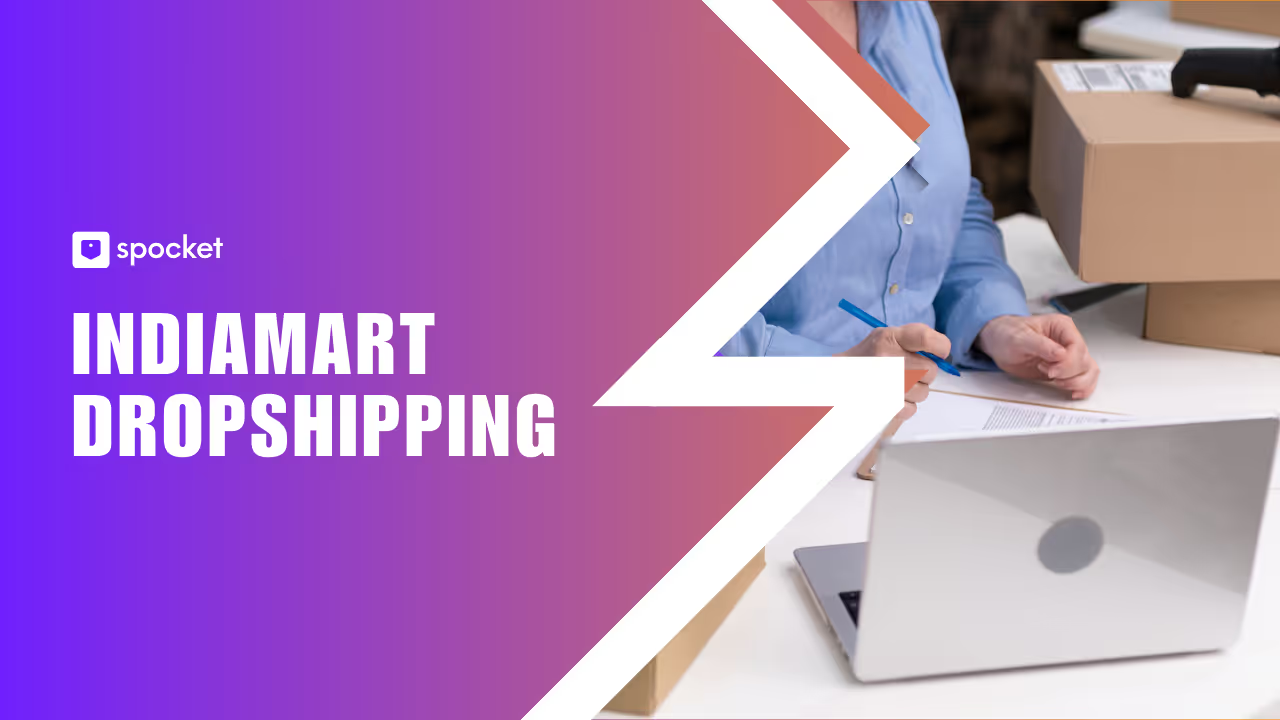
IndiaMART Dropshipping
Learn how IndiaMART dropshipping works, how to verify suppliers, negotiate MOQs, manage shipping/returns, and when to use Spocket for faster, branded fulfillment.
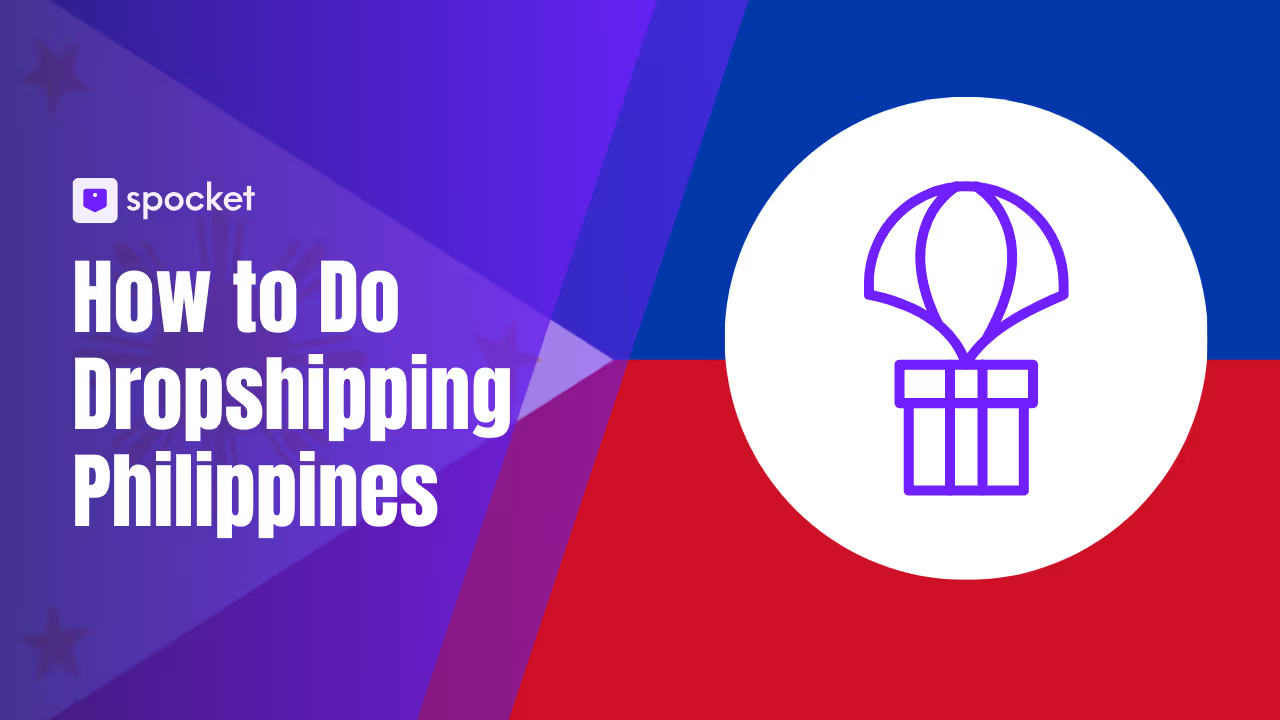
How to Do Dropshipping in the Philippines
Learn how to do dropshipping in the Philippines with a practical, step-by-step playbook—niche research, legal setup, Shopee/Lazada/Shopify options, COD & local payments, shipping, and how to source fast-shipping products using Spocket.


































